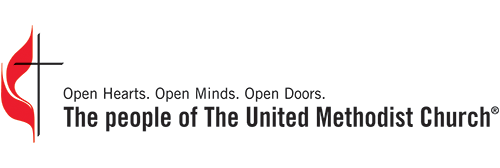 The fault lines of the divisions within Methodism are not hard to see. They do not simply revolve around the familiar themes of sex and marriage. They are not new. They are not local but global. And they have caused a hemorrhage within the church body that was once one of America's largest denominations. Desperately in search of someone or something to stave off the seemingly inevitable split or spiral into irrelevance, the Methodists have issued a study.
The fault lines of the divisions within Methodism are not hard to see. They do not simply revolve around the familiar themes of sex and marriage. They are not new. They are not local but global. And they have caused a hemorrhage within the church body that was once one of America's largest denominations. Desperately in search of someone or something to stave off the seemingly inevitable split or spiral into irrelevance, the Methodists have issued a study.FAULTLINES: Holy Conversations about Human Sexuality and The United Methodist Church is the name of it. You can review a 81 page sampler here. The Table of Contents says it all. . .
Introduction Letter from Brian K. Milford; Authors and Contributors; Book Samples
Living Faithfully - Alex Joyner, David L. Jr. Barnhart, Jill M. Johnson, Rebekah Jordan Gienapp
Is It Time? - Adolf Hansen
Holy Contradictions - Brian K. Milford, editor
The Marks of Hope - Matt Rawle, Juan Huertas, Katie McKay Simpson
Are We Really Better Together? - Rob Renfroe, Walter Fenton
The Fight for Marriage - Phillip F. Cramer, William L. Harbison
Our Strangely Warmed Hearts - Karen P. Oliveto
A New Church and a New Seminary - David McAllister-Wilson
The 19: Questions to Kindle a Wesleyan Spirit - Carolyn Moore
Our Purpose Is Love - David N. Field
So. . . Is it time? Is it time to stop using the word homosexuality without defining it? Is it time to stop confusing homosexual attraction with homosexual behavior? Is it time to stop interpreting the Bible as a static rather than a developing understanding of God’s revelation? Is it time to stop calling homosexuality a sin without clarifying what we mean? Is it time to stop fearing persons who have a sexual orientation or gender identity different from our own? Is it time to start expending our full energy on the mission of The United Methodist Church: to make disciples of Jesus Christ for the transformation of the world (instead of arguing about stuff like this)?
And with this are the requisite stories -- we all have people like we are talking about in our families and our congregations and we all know they are not so different and not so bad. Anecdotal evidence abounds that, despite what the Word of God says, such things are definitely not bad and may be good for Methodists. There is the requisite call for patience, understanding, and dialogue (all code words for the change is coming and once a few people shut up, leave, or die, we won't have to bother explaining ourselves).
Curiously, this sentence stuck out at me. How many times do you think that “Hope” is mentioned in the Gospels? You might be surprised that Jesus mentions hope only once (Luke 6:34). So that it about how much hope such a study as this will reconcile the differences and unite a people into a common confession and life. It is one more example of studying an issue until we get the answer we want -- no matter if it is not God's answer.
There is precious little in here about sin and forgiveness but a whole lot about justice. One line that I read that seems to say it all is this: The eucharist is the medicine that allows us to develop a justice imagination. If only Jesus had known this He just might have mentioned justice in the Words of Institution instead of the forgiveness of sins. Yup, pretty predictable and pretty sad. . . as Methodism continues its institutional decline here. . . while Methodists in Africa, especially, resist the decay. . .
2 comments:
The Methodists have a problem understanding right and wrong, and can no longer discern sin, even with their Bibles open. That is tragic.
Pastor Peters wrote:
"It is one more example of studying an issue until we get the answer we want -- no matter if it is not God's answer."
This is similar to all of the "dialogue" and studies conducted by the proponents of women's ordination in the Lutheran Church of Australia.
Pastor Peters wrote:
"...change is coming and once a few people shut up, leave, or die, we won't have to bother explaining ourselves).
Many laymen will leave, retire, or die. Moreover, the more conservative, traditional Methodist ministers will retire - only to be replaced by radical social justice warrior pastors fresh from the seminary. Perhaps the UMC leadership is waiting for the right moment for a strong majority of SJW ministers in their denomination.
Pastor Peters wrote:
". . . as Methodism continues its institutional decline here. . . while Methodists in Africa, especially, resist the decay. . ."
The African Methodists have just one problem: The UMC owns all church property, everywhere. An entire UMC congregation that wants to leave the denomination will soon find itself homeless.
Who cares how wealthy a denomination may become from generous endowments and valuable real estate if the buildings of said denomination are nearly empty every Sunday morning?
I wish confessional Lutheranism could be an attractive option for these disenchanted Methodists.
Post a Comment